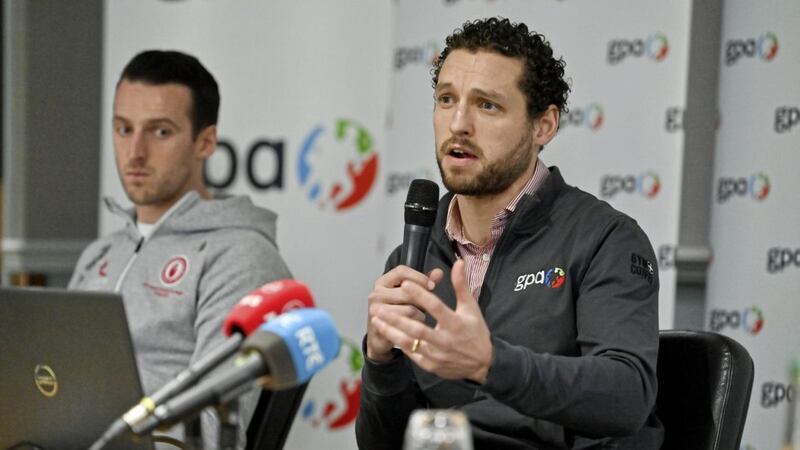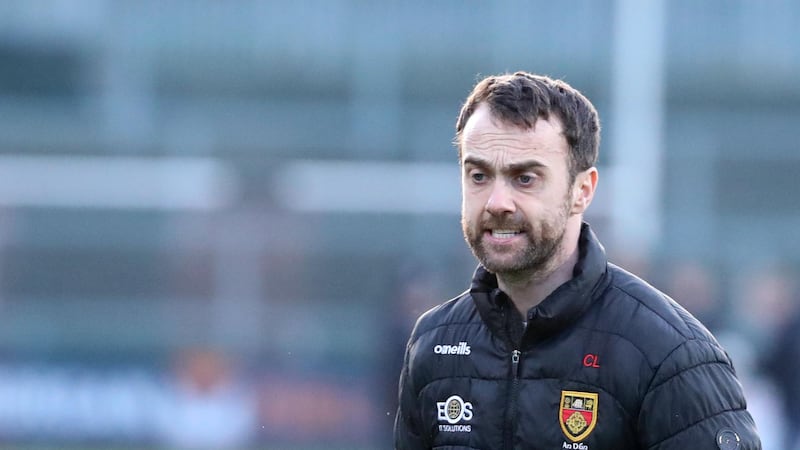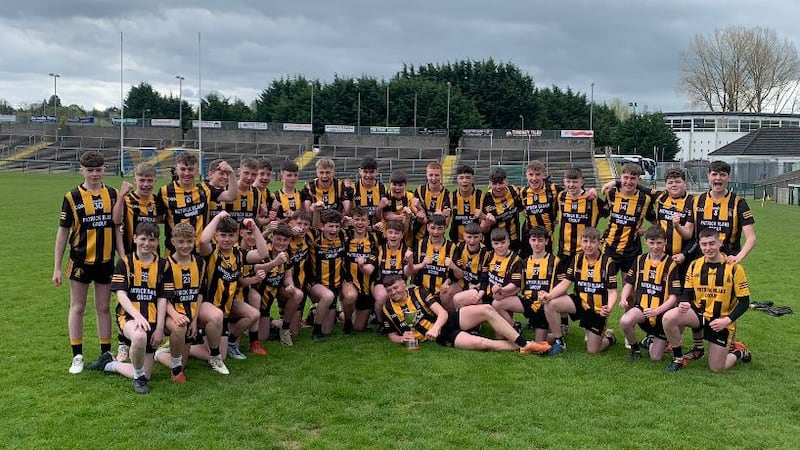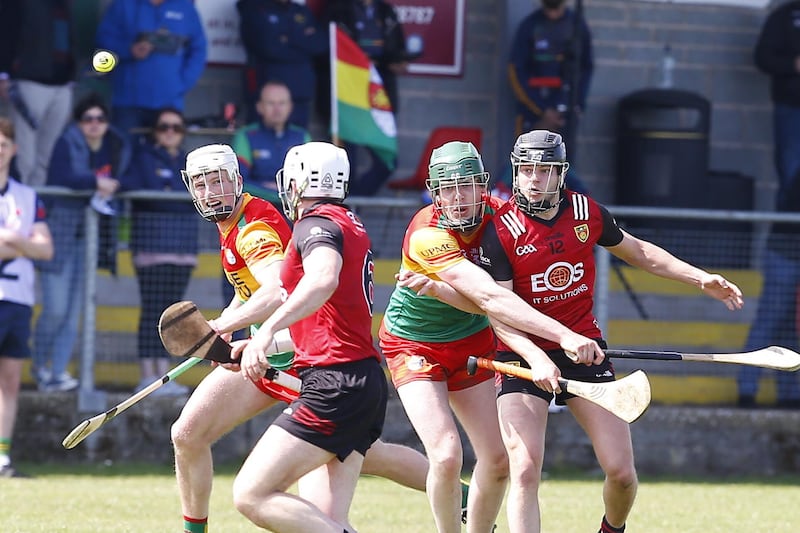IF THE Gaelic Players’ Association (GPA) intends to go up the ante in their dispute with the GAA, they should strike right at the economic heart of the Association and refuse to play in televised games, says Donal O’Neill.
One of the founding members of the GPA in 1999, Cape Town-based Down native O’Neill says he was shocked to learn of the ongoing stand-off over player mileage. He describes the GAA’s refusal to cover expenses for more than four training sessions per week as “back-to-the-future stuff” and says the GPA have militant options open to them if the dispute is not resolved to their satisfaction.
“If you want to get aggressive, play the games but demand that you’ll only do so if the cameras are switched off,” said O’Neill.
“That goes straight to the Achilles Heel of the GAA economy. Every sponsor, every badge that the players are wearing that they’ve never been consulted on, every billboard around the pitch, every Sky viewer, GAA Go viewer or RTE is viewer is frustrated if the cameras don’t go on.
“Let it go out on radio, let the media embrace it but go back to the old days, no TV, and see how that goes. You’re not saying you won’t play the game, you’re just saying: ‘Turn those cameras off and take a look in the mirror there lads’. That’s where I’d be going if I knew I had the full support of the players behind me.
“It would be the smartest, most powerful strategic move the players could make because they wouldn’t ostracise fans. If you don’t hurt the GAA financially they don’t care, they’ll just keep ploughing on. Unless you give them a right good kicking you’re pissing against the wind.”
Surely such a step would ostracise fans. What about the millions around the world who’d want to watch the game on TV? O’Neill believes the majority of supporters would have sympathy for the players.
“You don’t win against the GAA unless there’s aggro,” he says.
“The GPA has to take the strategic, long-term view and that’s three-to-five years. I honestly think that if players present their case with the right men coming forward to discuss it you would see the weight of public opinion behind them.
“The whole world is talking about cost of living so to ask for 65 cent a mile while the GAA are making very significant profits isn’t unreasonable and I don’t think the average punter would turn against them in huge numbers. And if they did, I would say: So what? If this isn’t addressed now you’re in a situation where inflation decimates their mileage allowance and what are you left with then?”
There have been stand-offs between the GAA and county teams in the past – most notably Kerry’s stance in 1982 over their wearing of ‘Adidas’ jerseys and even last summer when Tyrone stuck to their guns after the GAA initially declined to grant a two-week postponement of their All-Ireland semi-final against Kerry over a Covid outbreak in the Red Hand camp.
O’Neill says this year’s issue brought back unwelcome memories of those he came across at the outset of the GPA.
“It’s back-to-the-future stuff,” he said.
“I thought this was something base-level that had been put to bed and wouldn’t be seen again but here we are. I was just gob-smacked and how the GAA can even try to defend that position is beyond me.
“Some people are accusing the GPA of turning up and giving nothing back in return. That’s absolute rubbish. Look at the games at the weekend – that’s what you’re getting back in return. You’re getting lads who are playing to the best of their ability and the game is getting better despite what some old-timers might think.
“Players don’t get to the (physical) point they’re at now unless they’ve committed pretty-much everything and that’s always been the case with county players but as long as you’ve got an amateur code the best interests of the player will never be optimised.
“Somebody has to protect player welfare and that’s what the GPA has always been about so to be talking about things like mileage in this day and age is just disgraceful.
“The GAA is a closed economy and the driver of that economy boils down to the 32 county teams and nothing else and they need to be reminded of that very firmly in my opinion. These are young lads doing remarkable things and they’re just getting better.”
The GAA has offered to pay 65 cent per mile for four sessions a week which is the training schedule that many professional teams undertake. Four training sessions per week might be enough for some individuals, even some counties, but O’Neill argues that others may need more work to reach the top level and he is adamant that they should be afforded the GAA’s financial backing to pursue their goals.
“You’ve got systems in place in many counties that are not optimal so lads are off doing their own things and they don’t have a top coach guiding them as they would in Tyrone or Kerry or Dublin,” he said.
“You can plan out an athlete’s entire career if you know what you’re doing – when they’re going to peak, what they need at specific times, how many days they need to be training… You can map it out and bring it to the table and say: ‘Here’s how we create the best Gaelic Footballer in Down or Armagh or wherever and it’s going to cost us ‘X’.
“These things can all be worked out but the problem is that you’ve got a bunch of oul fellas who have no concept of what is required to become an elite anything. So there is a detachment from what the players are trying to achieve and what they need to get there and then there’s a bitching-match over 65p a mile.
“Yes, some professional athletes can train for times-a-week because it’s four times-a-week when you know what you’re doing and the athlete is managed as an asset but the county boards view their coffers as an asset and the players are a by-product of that.
“Everyone wants to focus on the money but the reality is that the resources in the GAA are poorly spread and the expertise is thin on the ground. The expertise that is there is operating in a vacuum in places like Tyrone, Kerry and Dublin and good luck to them I say.
“It’s very easy to see this as a money issue but it’s not, it’s an issue of resources and applying them effectively and the GAA economy is not a safe haven for a lot of players unfortunately.”








